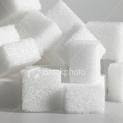
In my 30 years of practice, the number one subject that triggers the most controversy is that of low or no calorie sweeteners.
People seem to take sweeteners personally — responding in angst, argument or even anger. How can a substitute for sugar (that has a measly 16 calories per teaspoon) create such an uproar? Enter the blog! At last a medium where dialogue can reign.
What triggered my interest in discussing this subject was a study by Swithers and Davidson in the February 2008 issue of "Behavioral Neuroscience."
We know that sweet taste from sugar is a powerful trigger that prompts the mind and body to eat and to process calories. However, when the researchers fed rats a food sweetened with a no calorie sweetener — food that was actually lower in total calories — the rats actually ate more food and gained more weight than rats given sugar sweetened food that was higher in total calories. In addition to eating more of the no-calorie sweetened food, the rats also adjusted their body processes to burn fewer calories — contributing to increased body weight and fat.
They discuss the potential implications of their findings: the increases in the numbers of Americans consuming products containing low/no calorie sweeteners from about 70 million in 1987 to about 160 million in 2000, and that low/no calorie sweeteners abound in a wide variety of foods (especially in the form of soft drinks). That the incidence of obesity has also increased dramatically during this period, from about 16 percent of the population to about 30 percent.
They also site a recent human study from the July 31, 2007, issue of "Circulation" that suggested that intake of one or more regular or diet soft drinks was associated with a greater than 50 percent incidence of metabolic syndrome (obesity, inches around the abdomen, higher fasting blood sugar and fat levels, and higher blood pressure).
Could it be that low/no-calorie sweeteners (and foods containing them) fake us into consuming and conserving more calories than if we simply eat the food that has the real (calorie-containing) sugar in it?
My take? Low/no calorie sweetened foods sometimes offer a lower calorie alternative to foods sweetened with sugar (check the label to make sure). There are studies that also show that low/no calorie sweetened foods are helpful for controlling weight. The rat study gave me pause though.
For me — I'll take sugar-sweetened items on special occasions and in moderation. We get ample "sugar" naturally from whole foods and don't need sweets every meal, every day. Safety of these low/no calorie sweeteners? I'm going to save this topic for another time.
Your take on low/no calorie sweeteners? Angst? Argument? Anger? I want to hear from you.
- Jennifer
source : mayoclinic.com